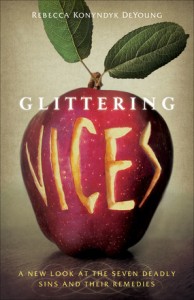 Studying the Seven Deadly Sins, or Capital Vices, and going through a period of self-examination puts Holy Week into sharp focus. In some ways, Holy Week is an inevitable outcome. To study the sins is to realize how disordered our love of good things has become. As Dr. DeYoung writes in Glittering Vices, when we study the sins “we recognize the way the vices powerfully articulate distortions of deeply human desires.” “The vices,” she writes, “ have such attractive power because they promise a good that seems like a true human perfection and complete happiness.” And yet, in our own self-examination, it is hard not to realize that we have substituted something else for God, and the result is brokenness, hurt, and separation from God, one another and all of creation. Holy Week articulates that through the services of Maundy Thursday and Good Friday, the movement from a last supper into the darkness of death. Death, however, is not the final word, nor is the grip of the vices in our lives because in the midst of it all, it is God who goes through those days to bring us release.
Studying the Seven Deadly Sins, or Capital Vices, and going through a period of self-examination puts Holy Week into sharp focus. In some ways, Holy Week is an inevitable outcome. To study the sins is to realize how disordered our love of good things has become. As Dr. DeYoung writes in Glittering Vices, when we study the sins “we recognize the way the vices powerfully articulate distortions of deeply human desires.” “The vices,” she writes, “ have such attractive power because they promise a good that seems like a true human perfection and complete happiness.” And yet, in our own self-examination, it is hard not to realize that we have substituted something else for God, and the result is brokenness, hurt, and separation from God, one another and all of creation. Holy Week articulates that through the services of Maundy Thursday and Good Friday, the movement from a last supper into the darkness of death. Death, however, is not the final word, nor is the grip of the vices in our lives because in the midst of it all, it is God who goes through those days to bring us release.
That is the other reality of studying the seven deadly sins and going through self-examination. Done well, it should always lead us back to the new life God offers us and the grace that sustains our lives. We do not go through them simply or only to feel bad about ourselves. We study them to name the grip of sin on our lives, but also the power of grace to set us free and raise us to new life. Studying the sins leads us to ask how we are living into the new life that is ours through the resurrection of Jesus Christ. Examining the role of the vices and practicing the virtues is like the encouragement in scripture to “put away” our sinful nature and “clothe ourselves” with the character of Christ. We are living into the good news God gives us Easter morning, resurrection, new life. As Dr. DeYoung writes, “the moral project for a Christian is to die to the old self and rise to new life in Christ.”
I hope and pray that our study this Lent has led us to that conclusion. I have appreciated what you have shared in worship and in personal conversation about wearing the reminder strings each week. I have been truly awed by the interest in this study. We’ve sold more books for this study than any previous one. There is something powerful about naming the sins in our lives, but there is something even more powerful about experiencing new life of resurrection, as we live into the virtues that re-form us and redirect us toward healthier, more faithful ways of life. My hope at the beginning of this study remains true at the end—that you and I will know what it means to find our true identity in being called children of God, and that the vices will lose their power in our lives as we let that identity guide our living. In the words of 1 Peter, “God’s divine power has given us everything we need for life and godliness.” May that be true every day and especially on Easter morning as we gather around the empty tomb to celebrate God’s victory over sin and death.
